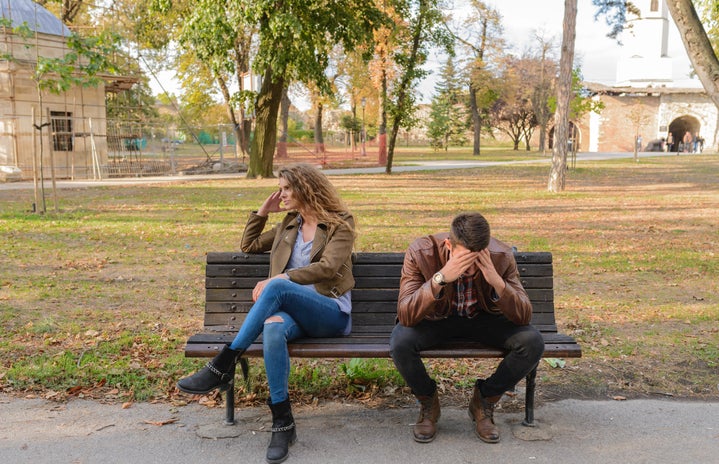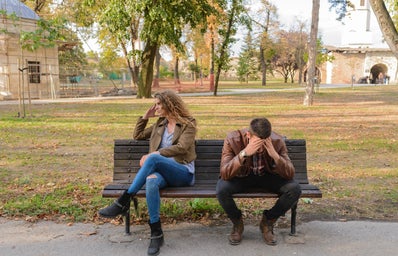Cancel culture refers to “the popular practice of withdrawing support for (aka, canceling) public figures and companies after they have done or said something considered objectionable or offensive.” Cancel culture rose to prominence in the 2010s and became especially popular over the last couple of years. Debates on the ethics and effectiveness of cancel culture have been common since, with some saying that it promotes bullying and diminishes individuals’ potential for personal growth and others arguing that certain opinions and actions constitute valid grounds for cancellation. Cancel culture, as it pertains to celebrities and public figures, is not the focus of this article. That being said, I will say that some acts should render public figures obsolete; if you cannot be responsible on your public platform, should you be considered worthy of having such a platform? Yes, J.K. Rowling, I’m talking to you.
Rather than delving deeper into the topic of mainstream cancel culture, I will instead focus on the validity of “canceling” people in your personal life. Whether it’s a toxic lover, a shitty family member, or a friend who makes you feel “less than,” where should you draw the line, and should you cut someone off completely?
From a young age, I’ve always had trouble letting go. I was prone to giving too much and caring too much. People say that about themselves like it’s a good thing, something that makes you better than everyone else. Not only is that narcissistic, but it turns out there’s a thin line between selflessness and self-deprecation. Are you treating people “how you want to be treated” by giving them the respect everyone deserves, or are you projecting the affection you crave onto them and expecting the same in return? You give and give because, deep down, you expect that you’ll get all that energy back at some point — but that’s rarely the case. People have different love languages, and there are different obstacles that can keep them from demonstrating affection or realizing emotion. They may not behave how you want them to, either because they can’t or because they won’t. You can still have a healthy relationship with them, but there are many reasons why giving unbounded amounts of your energy to someone is bad for you and for them. “Giving your all” to someone is both unhealthy and a lot of work. Being someone’s “everything” is equally draining. We often romanticize emotional labor and finding a soulmate, but there’s nothing romantic about it. This is not to say that you shouldn’t love and support the people in your life, but know that you aren’t doing anyone any favors by not setting boundaries.
Giving up on a relationship is difficult, and can feel like destroying something you worked hard to build. Unhealthy or one-sided relationships are even harder to move away from. We hold on because we hold out hope that things will get better, but that’s not always the case. Whether you feel something isn’t working due to a fundamental difference in values or simply the dynamics of the relationship, some partnerships are not worth saving. I’ve had a couple of friends who really enjoyed being the focal point of every exchange. It felt like they were always waiting for me to finish my sentence to talk about themselves — not a great foundation for mutual respect and support. One of them was really struggling with their mental health, and I felt bad for them because I struggle, too. It can be difficult to draw the line and support someone without harming yourself in the process. I find it especially hard to step away from people who are struggling with mental illness because I know the difference that a support system can make, but at some point, you have to set boundaries. If both of you are unwell, neither of you can provide the other one with support. Putting yourself first isn’t selfish — it’s sustainable.
I have several amazing, lifelong friends with whom I share very healthy relationships. You can be there for someone while also recognizing that you are not responsible for their dysfunction and that there is only so much you can do. Some people won’t change; others can’t. If the relationship isn’t healthy as is, consider stepping back. Most recently, I had to let go of someone I was very close with for quite some time. I may have always been their punching bag, although I like to think we had some good times. I remember I wasn’t feeling my best during my freshman year of college, and they would get mad at me for not leaving our shared room in the middle of a depressive episode so they could have sex with their partner. I never knew if they were going to be in a good mood and initiate a dance-off or if they were going to snap at me and make me feel awful. I’m sure I’m not perfect, but I also know that I loved them, and wished and treated them well. I don’t think the feeling was mutual. I saw the way they treated their other friends and wondered if maybe I was the problem, or maybe they were just annoyed at me because we saw so much of each other. I made excuses for them when they engaged in inappropriate behaviors and defended them to mutual acquaintances. I could list all of the bad things they did to me over the last few years, but it wouldn’t matter. In relationships, it’s never about the big things that take a piece of you all at once. To be in an emotionally abusive relationship is to lose a small part of yourself every day until you don’t know why you stay anymore. People talk about this in romantic relationships, but it rings true for every relationship, whether it’s romantic, platonic, or familial.
There have been many times in my life when I’ve chosen to step away from someone or remove them from my life altogether. It’s painful and can come across as aggressive, but sometimes a clean break is best. It’s better than fighting and better than staying and spreading yourself thin. There’s no point in being with someone for the long haul when it starts to feel like too long. To all the friends and lovers I’ve left behind, I hope you are well, or maybe I don’t think about you at all. I’m grateful, and I miss you, or I don’t. But what I know for sure is that I’m better off without you, and for that, I’m not sorry.


